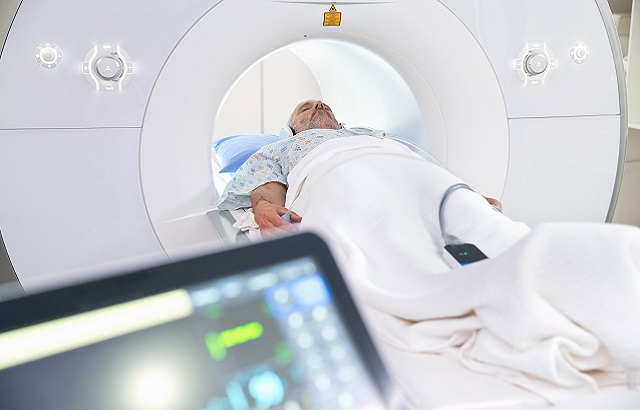

Mild Covid-19 infection is very unlikely to cause lasting damage to the structure or function of the heart, according to research we part-funded.

The researchers say the results, published in JACC Cardiovascular Imaging, should reassure the public, as they relate to the vast majority of people who had Covid-19 infections with mild or no symptoms.
This study of 149 healthcare workers recruited from Barts Health and Royal Free London NHS Trusts is the largest and most detailed study to date into mild Covid-19 infection and its longer-term impact on the heart. It follows concerns that because severe hospitalised Covid-19 infections are associated with blood clots, inflammation of the heart and heart damage, mild infections may cause similar complications. However, up until now, there has been little information specifically looking at this group of people and the effects on the heart further down the line after infection.
Detailed look at the heart
Researchers identified participants with mild Covid-19 from the COVIDsortium, a study in three London hospitals where healthcare workers had undergone weekly samples of blood, saliva and nasal swabs for 16 weeks. Six months after mild infection, they looked at the heart structure and function by analysing heart MRI scans of 74 healthcare workers with prior mild Covid-19 and compared them to the scans of 75 healthy age, sex and ethnicity matched controls who had not previously been infected.
They found no difference in the size or amount of muscle of the left ventricle – the main chamber of the heart responsible for pumping blood around the body – or its ability to pump blood out of the heart. The amount of inflammation and scarring in the heart, and the elasticity of the aorta – which is important for blood to easily flow out of the heart – remained the same between the two groups.
When the researchers analysed blood samples, they found no differences in the two markers of heart muscle damage – troponin and NT-proBNP - six months after mild Covid-19 infection.
Reassuring findings
Now, the team of researchers and cardiologists suggest that there is little benefit from screening the hearts of people who’ve had mild infection, and research should focus on those who’ve suffered severe Covid-19, high risk groups or those with ongoing symptoms.
Dr Sonya Babu-Narayan, our Associate Medical Director and Consultant Cardiologist, said:
“These findings one year on from the start of the pandemic are welcome reassurance to the hundreds of thousands of people who have experienced Covid-19 with mild or no symptoms.
“Throughout the pandemic, BHF researchers have made progress investigating the short and long-term effects of Covid-19 on the heart and circulatory system. There’s still a lot more work to be done, but for now it seems the good news is that mild Covid-19 illness does not appear to be linked to lasting heart damage.”
There were small abnormalities identified by MRI but these were not found more often in people who had mild Covid-19 than those that have never had it. The changes could have been caused by something other than coronavirus and they may not make any noticeable difference to the health of that person.
This study was also funded by Barts Charity and was a collaboration between researchers at UCL, Barts Health NHS Trust, Queen Mary University of London and Royal Free London NHS Foundation Trust. The results are presented this weekend as a Young Investigator Award at the EuroCMR meeting.


